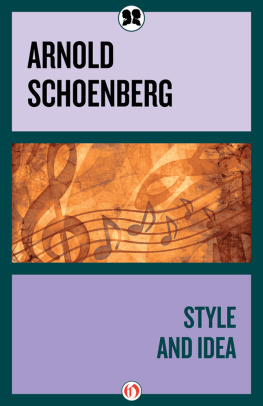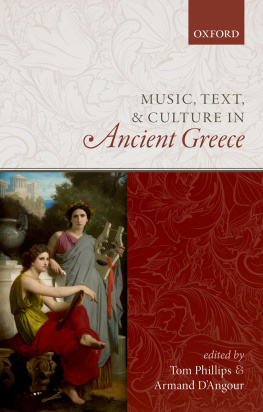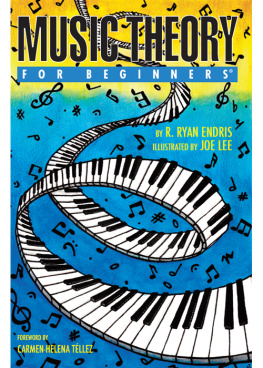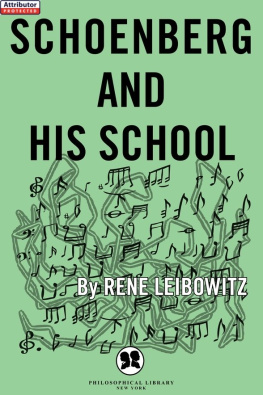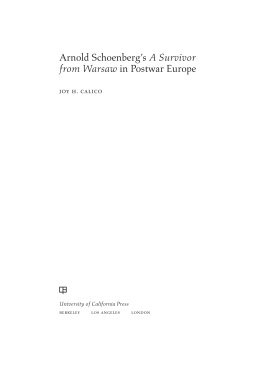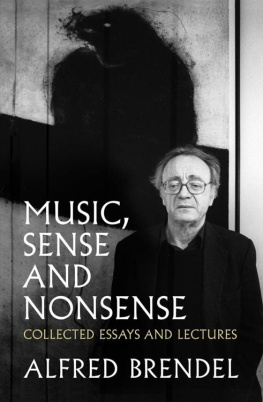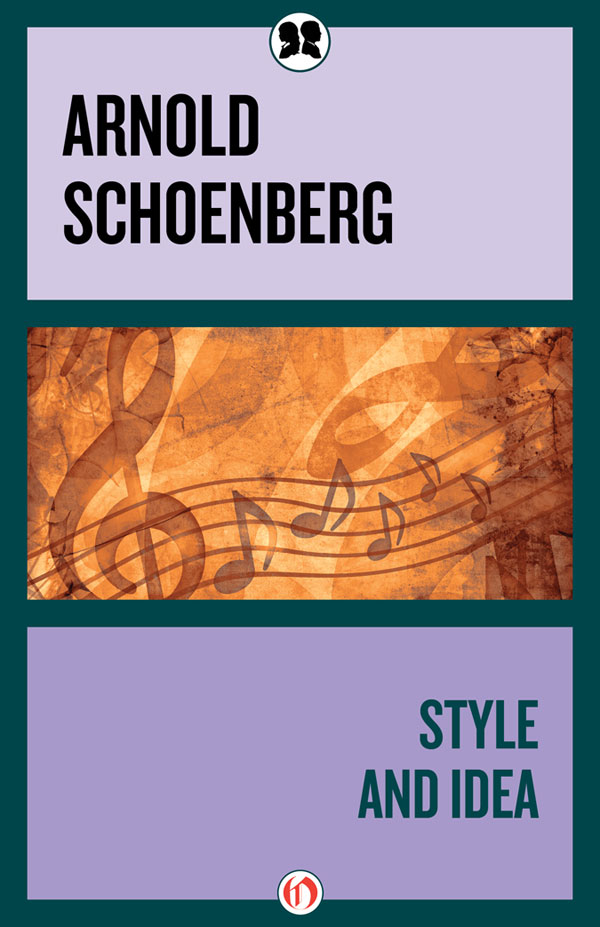The Relationship to the Text
There are relatively few people who are capable of understanding, purely in terms of music, what music has to say. The assumption that a piece of music must summon up images of one sort or another, and that if these are absent the piece of music has not been understood or is worthless, is as widespread as only the false and banal can be. Nobody expects such a thing from any other art, but rather contents himself with the effects of its material, although in the other arts the material-subject, the represented object, automatically presents itself to the limited power of comprehension of the intellectually mediocre. Since music as such lacks a material-subject, some look beyond its effects for purely formal beauty, others for poetic procedures. Even Schopenhauer, who at first says something really exhaustive about the essence of music in his wonderful thought, The composer reveals the inmost essence of the world and utters the most profound wisdom in a language which his reason does not understand, just as a magnetic somnambulist gives disclosures about things which she has no idea of when awakeeven he loses himself later when he tries to translate details of this language which the reason does not understand into our terms. It must, however, be clear to him that in this translation into the terms of human language, which is abstraction, reduction to the recognizable, the essential, the language of the world, which ought perhaps to remain incomprehensible and only perceptible, is lost. But even so he is justified in this procedure, since after all it is his aim as a philosopher to represent the essence of the world, its unsurveyable wealth, in terms of concepts whose poverty is all too easily seen through. And Wagner too, when he wanted to give the average man an indirect notion of what he as a musician had looked upon directly, did right to attach programs to Beethovens symphonies.
Such a procedure becomes disastrous when it becomes general usage. Then its meaning becomes perverted to the opposite; one tries to recognize events and feelings in music as if they must be there. On the contrary, in the case of Wagner it is as follows: the impression of the essence of the world received through music becomes productive in him and stimulates him to a poetic transformation in the material of another art. But the events and feelings which appear in this transformation were not contained in the music, but are merely the material which the poet uses only because so direct, unpolluted and pure a mode of expression is denied to poetry, an art still bound to subject-matter.
The capacity of pure perception is extremely rare and only to be met with in men of high calibre. This explains why professional arbiters become embarrassed by certain difficulties. That our scores become harder and harder to read, that the relatively few performances pass by so quickly, that often even the most sensitive, purest man can receive only fleeting impressionsall this makes it impossible for the critic, who must report and judge, but who is usually incapable of imagining alive a musical score, to do his duty even with that degree of honesty upon which he might perhaps decide if it would do him no harm. Absolutely helpless he stands in the face of purely musical effect, and therefore he prefers to write about music which is somehow connected with a text: about program music, songs, operas, etc. One could almost excuse him for it when one observes that operatic conductors, from whom one would like to find out something about the music of a new opera, prattle almost exclusively about the libretto, the theatrical effectiveness, and the performers. Indeed, since musicians have acquired culture and think they have to demonstrate this by avoiding shop-talk, there are scarcely any musicians with whom one can talk about music. But Wagner, whom they like so much to cite as an example, wrote a tremendous amount about purely musical matters; and I am sure that he would unconditionally repudiate these consequences of his misunderstood efforts.
Therefore, it is nothing but a comfortable way out of this dilemma when a music critic writes of an author that his composition does not do justice to the words of the poet. The scope of this newspaper, which is always most limited in space just when necessary evidence should be brought in, is always most willing to help out the lack of ideas, and the artist is really pronounced guilty because of lack of evidence. But the evidence for such assertions, when it is once brought out, is rather evidence for the contrary, since it merely shows how somebody would make music who does not know how tohow accordingly music ought in no case to look if it has been composed by an artist. This is even true in the case of a composers writing criticisms. Even if he is a good composer. For in the moment when he writes criticisms he is not a composer, not musically inspired. If he were inspired he would not describe how the piece ought to be composed, but would compose it himself. This is quicker and even easier for one who can do it, and is more convincing.
In reality, such judgments come from the most banal notion possible, from a conventional scheme according to which a certain dynamic level and speed in the music must correspond to certain occurrences in the poem and must run exactly parallel to them. Quite aside from the fact that this parallelism, or one even more profound, can also be present when externally the opposite seems to be presentedthat, for example, a tender thought can be expressed by a quick and violent theme because the following violence will develop from it more organicallyquite aside from this, such a scheme is already to be rejected because it is conventional; because it would lead to making music into a language which composes and thinks for every man. And its use by critics leads to manifestations like an article which I once read somewhere, Faults of Declamation in Wagner, in which someone showed how he would have composed certain passages if Wagner had not beaten him to it.
A few years ago I was deeply ashamed when I discovered in several Schubert songs, well-known to me, that I had absolutely no idea what was going on in the poems on which they were based. But when I had read the poems it became clear to me that I had gained absolutely nothing for the understanding of the songs thereby, since the poems did not make it necessary for me to change my conception of the musical interpretation in the slightest degree. On the contrary, it appeared that, without knowing the poem, I had grasped the content, the real content, perhaps even more profoundly than if I had clung to the surface of the mere thoughts expressed in words. For me, even more decisive than this experience was the fact that, inspired by the sound of the first words of the text, I had composed many of my songs straight through to the end without troubling myself in the slightest about the continuation of the poetic events, without even grasping them in the ecstasy of composing, and that only days later I thought of looking back to see just what was the real poetic content of my song. It then turned out, to my greatest astonishment, that I had never done greater justice to the poet than when, guided by my first direct contact with the sound of the beginning, I divined everything that obviosuly had to follow this first sound with inevitability.
Thence it became clear to me that the work of art is like every other complete organism. It is so homogeneous in its composition that in every little detail it reveals its truest, inmost essence. When one cuts into any part of the human body, the same thing always comes outblood. When one hears a verse of a poem, a measure of a composition, one is in a position to comprehend the whole. Even so, a word, a glance, a gesture, the gait, even the color of the hair, are sufficient to reveal the personality of a human being. So I had completely understood the Schubert songs, together with their poems, from the music alone, and the poems of Stefan George from their sound alone, with a perfection that by analysis and synthesis could hardly have been attained, but certainly not surpassed. However, such impressions usually address themselves to the intellect later on, and demand that it prepare them for general applicability, that it dissect and sort them, that it measure and test them, and resolve into details what we possess as a whole. And even artistic creation often goes this roundabout way before it arrives at the real conception. When Karl Kraus calls language the mother of thought, and Wassily Kandinsky and Oskar Kokoschka paint pictures the objective theme of which is hardly more than an excuse to improvise in colors and forms and to express themselves as only the musician expressed himself until now, these are symptoms of a gradually expanding knowledge of the true nature of art. And with great joy I read Kandinskys book On the Spiritual in Art, in which the road for painting is pointed out and the hope is aroused that those who ask about the text, about the subject-matter, will soon ask no more.

